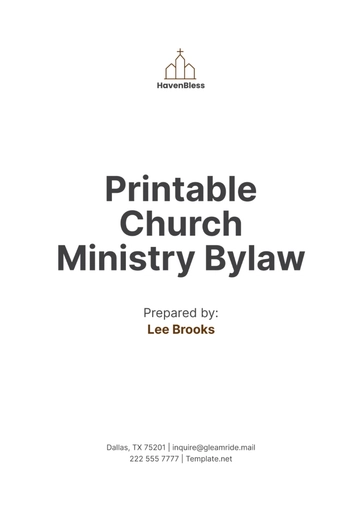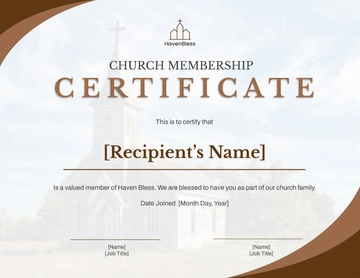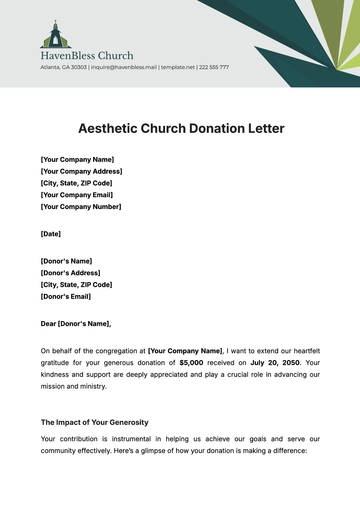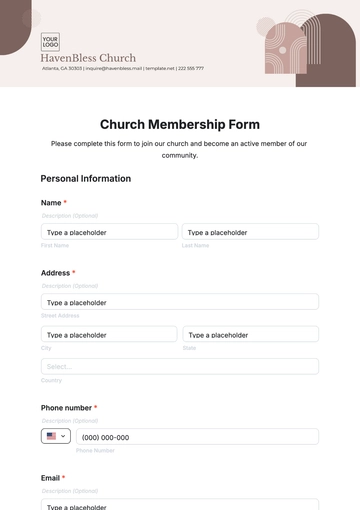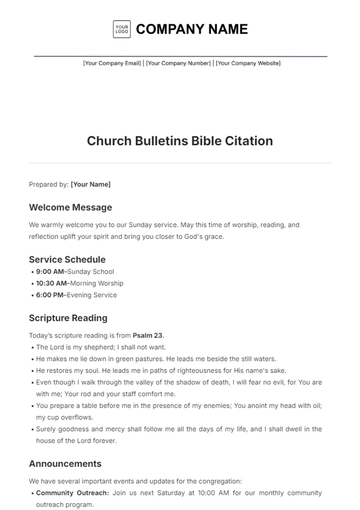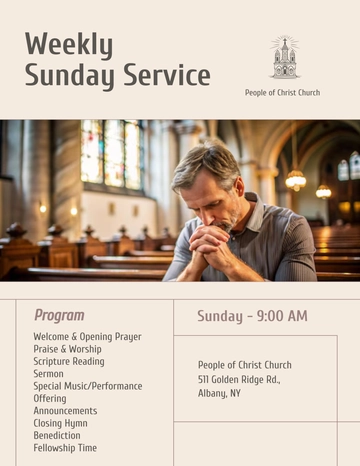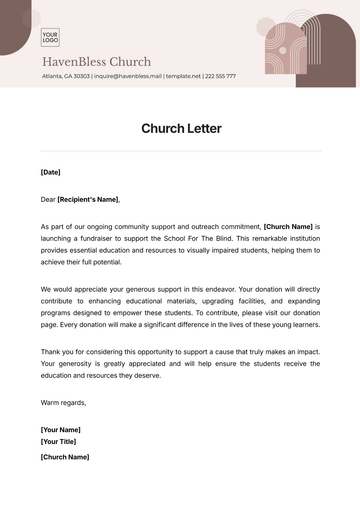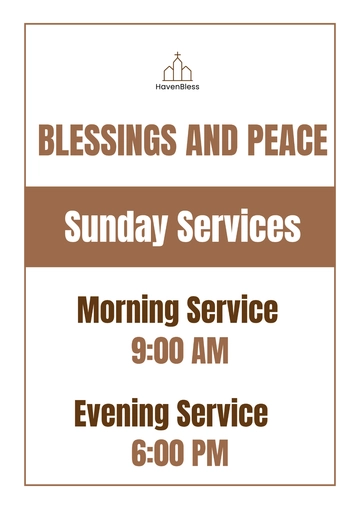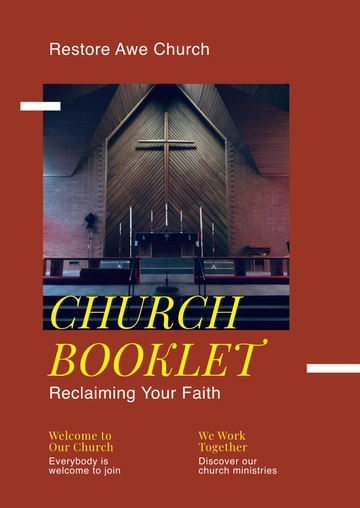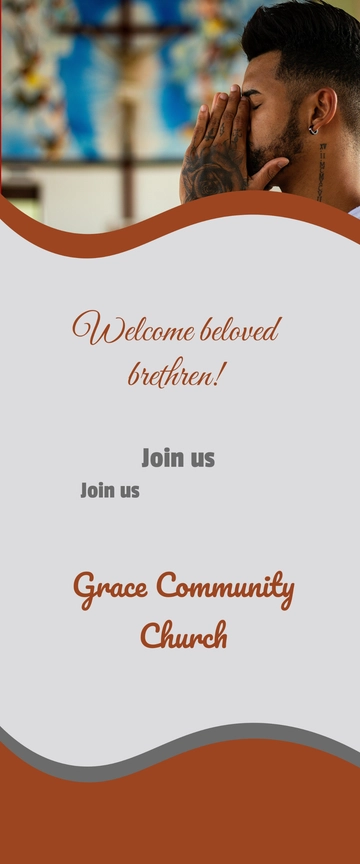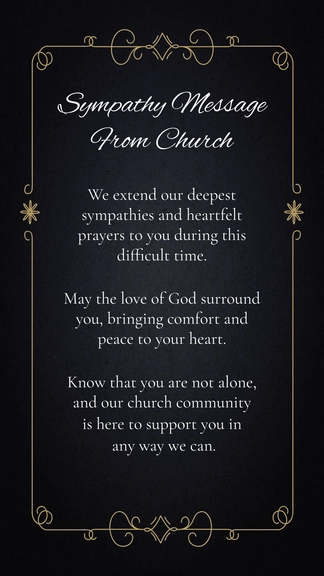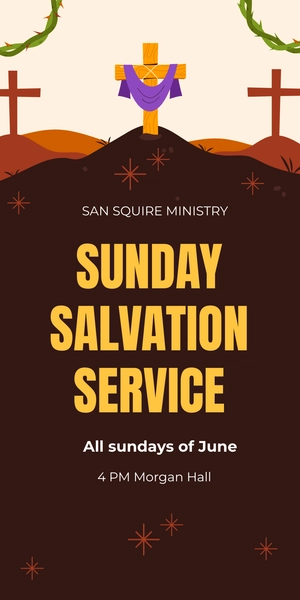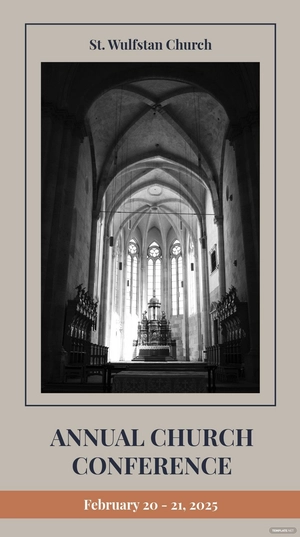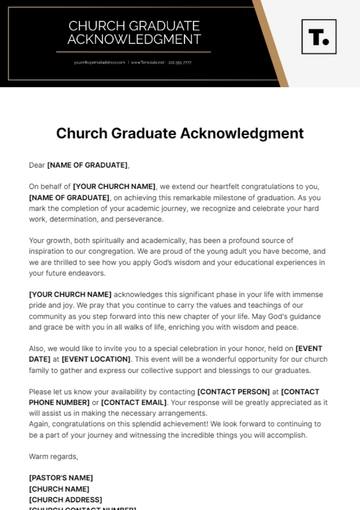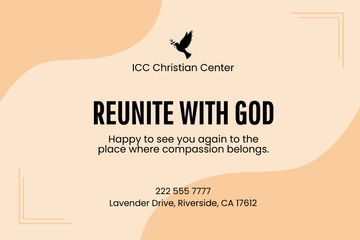Free Church Sermon Guide Sample

I. Introduction
A. Purpose of the Sermon
Define the Primary Goal or Message
Today’s sermon will delve into the transformative power of forgiveness as demonstrated by Jesus in the Parable of the Unforgiving Servant. We aim to understand how forgiveness is not just a command but a pathway to healing and freedom. By exploring this topic, we will gain insight into how embracing forgiveness can positively impact our relationships and our spiritual well-being.
Explain the Significance for the Congregation
Forgiveness is often one of the most challenging aspects of Christian living, yet it is vital for spiritual growth and maintaining harmony within the community. This message will encourage us to confront any lingering bitterness or resentment and embrace the liberating power of forgiveness in our everyday lives. Through this, we will strengthen our relationships with one another and reflect God’s grace more fully.
B. Contextual Background
Historical Context of the Passage
The Parable of the Unforgiving Servant, found in Matthew 18:21-35, was told by Jesus in a cultural context where forgiveness was often limited and grudges were prevalent. This parable was revolutionary in its teaching, emphasizing an expansive and unconditional approach to forgiveness that went beyond the conventional norms of the time.
Cultural Relevance to the Audience
In our contemporary world, where conflicts and grudges are commonplace, Jesus’ teaching on forgiveness challenges us to adopt a higher standard of grace and reconciliation. This message is especially pertinent in a society that often values retribution over forgiveness, urging us to live out the radical love and mercy exemplified by Christ.
C. Overview of the Sermon
Brief Summary of the Main Points
We will explore the nature of forgiveness as a divine mandate, the personal and relational costs of withholding forgiveness, and practical steps to cultivate a forgiving heart. Each point will be grounded in biblical teaching and aimed at fostering a deeper understanding of how forgiveness can transform our lives.
Preview of Key Themes and Applications
Key themes will include the nature of God’s forgiveness, the detrimental effects of unforgiveness, and actionable strategies for practicing forgiveness. We will look at how these themes apply not only to our personal relationships but also to our broader interactions within the church community and beyond.
II. Scripture Selection
A. Main Scripture Passage
Text Reference and Location
The main scripture passage is Matthew 18:21-35, which contains the Parable of the Unforgiving Servant. In this parable, Jesus illustrates the stark contrast between God’s boundless forgiveness and the limited forgiveness often displayed by individuals.
Brief Explanation of Why this Passage was Chosen
This passage was chosen because it provides a powerful narrative that encapsulates the core message of forgiveness. It vividly contrasts the generous forgiveness given by the king with the harshness of the unforgiving servant, underscoring the expectation that we, too, must forgive others as God forgives us.
B. Supporting Scriptures
Additional verses that reinforce the main message:
Ephesians 4:32: “Be kind to one another, tenderhearted, forgiving one another, as God in Christ forgave you.” This verse highlights the basis for our forgiveness—God’s forgiveness of us—and encourages us to extend the same grace to others.
Colossians 3:13: “Bear with one another and, if one has a complaint against another, forgive each other; as the Lord has forgiven you, so you also must forgive.” This verse reinforces the idea that our forgiveness of others is a direct response to the forgiveness we have received from Christ.
Cross-references for Deeper Understanding
Cross-references like Luke 6:37 and Mark 11:25 provide additional insights into Jesus’ teachings on forgiveness and the broader implications for our relationships. They offer a comprehensive view of how forgiveness operates within the context of Christian living and spiritual practice.
III. Sermon Outline
A. Introduction
Hook or Attention-grabber
Start with a compelling story about a well-known figure or personal experience related to the struggle of forgiveness, illustrating the emotional and spiritual burden of holding onto grudges. This will capture the audience's attention and set the stage for discussing the profound impact of forgiveness.
Introduction to the main topic or theme: Introduce the theme of the sermon by explaining how forgiveness is central to Jesus’ teachings and essential for personal peace and relational harmony. Highlight that today’s message will offer both biblical insights and practical applications to help us live out this transformative principle.
B. Main Points
Point 1: The Nature of Forgiveness
Explanation: Forgiveness is an intentional act of releasing someone from the debt of their wrongs, mirroring the grace and mercy God shows us. It involves overcoming natural inclinations toward revenge or resentment and choosing to act in love and mercy.
Scripture references: Matthew 18:21-22 shows Jesus’ teaching on the extent of forgiveness; Luke 6:37 emphasizes the reciprocal nature of forgiveness in our spiritual lives.
Illustrations or examples: Use the story of Joseph forgiving his brothers (Genesis 45) as a powerful example of forgiveness that transcends personal pain and leads to reconciliation and restoration.
Point 2: The Consequences of Withholding Forgiveness
Explanation: Failing to forgive not only strains relationships but also burdens our own spiritual well-being, creating barriers to experiencing God’s forgiveness and peace. It can lead to ongoing emotional distress and division within the community.
Scripture references: Matthew 18:28-30 depicts the harsh consequences faced by the unforgiving servant, while Hebrews 12:15 warns against the root of bitterness that grows from unresolved grudges.
Illustrations or examples: Share a case study or a real-life example where unforgiveness led to prolonged conflict and suffering, contrasting it with scenarios where forgiveness led to healing and restoration.
Point 3: Practical Steps to Forgive
Explanation: Forgiveness involves a series of deliberate steps, including recognizing the need to forgive, praying for strength, and seeking reconciliation when possible. It is a process that often requires ongoing effort and support.
Scripture References: Matthew 5:23-24 underscores the importance of reconciliation before worship; James 5:16 highlights the power of confession and prayer in overcoming relational barriers.
Illustrations or Examples: Provide a practical guide for how to approach someone to offer forgiveness, including steps such as prayer, self-reflection, and honest communication, supported by examples from church life or personal experiences.
IV. Illustrations and Anecdotes
A. Relevant Stories
Personal Stories or Testimonies
Share a testimony from a church member who experienced a profound change after choosing to forgive someone who had wronged them. This story could illustrate the emotional healing and restoration of relationships that followed their act of forgiveness, providing a relatable example for the congregation.
Historical or Biblical Anecdotes
The tale of Corrie ten Boom, a courageous individual who extended forgiveness to a guard from a concentration camp following the harrowing events of World War II, stands as a profound illustration of historical significance. Her personal transformation, marked by an arduous journey from intense bitterness to authentic forgiveness, vividly exemplifies the remarkable influence that grace and forgiveness can have in transcending severe suffering and trauma. Corrie ten Boom's story is not just a reflection of personal resilience but also serves as an enduring testament to the power of the human spirit to heal and reconcile even in the face of unimaginable adversity.
B. Analogies and Metaphors
Visual Aids to Clarify Concepts
Imagine a clogged pipe as an analogy to understand unforgiveness. Just as a pipe that has become clogged hinders the easy and efficient flow of water through it, similarly, unforgiveness acts as an obstruction that impedes the flow of God's grace and peace in our lives. When we hold onto grudges and refuse to forgive, it creates a barrier that prevents us from fully experiencing divine grace and inner tranquility. In this analogy, forgiveness is akin to the cleansing process that removes the blockage from the pipe. By choosing to forgive, we clear away the hindrances and restore the pipe to its intended function, thereby allowing God's grace and peace to flow freely and abundantly in our lives once again.
Comparative Examples to Enhance Understanding
Consider comparing forgiveness to the concept of a fresh start on a clean slate, highlighting how this powerful act enables individuals to move forward unburdened by the weight of past transgressions. This analogy serves as a vivid illustration for the congregation, helping them to clearly envision the profound freedom and new beginning that forgiveness offers.
V. Application
A. Practical Applications
How the Message Can Be Applied to Daily Life
Encourage members of the congregation to reflect deeply and identify specific situations in their lives where they are harboring resentment or holding onto grudges against others. Once these instances have been acknowledged, guide them to actively engage in the process of forgiveness, addressing the individuals who have caused them pain. Suggest practical, actionable steps that can facilitate this journey toward healing. For instance, members might consider writing a heartfelt letter of forgiveness to express their feelings and move toward resolution. Alternatively, they could have a face-to-face conversation with the person who has wronged them, allowing for open communication and the opportunity to mend the relationship. By taking these steps, individuals can work towards releasing negative emotions and fostering a sense of peace and reconciliation within themselves.
Specific Actions or Changes Encouraged
Encourage all members to consistently engage in daily acts of kindness and forgiveness within their personal interactions. This can include actions such as offering sincere apologies when they have wronged someone, extending grace and understanding during conflicts or misunderstandings, and making conscious efforts to heal and mend any broken or strained relationships. Emphasize the profound importance of dedicating regular time for self-reflection and prayer. These practices can significantly nurture and cultivate a forgiving heart, enabling individuals to embody the virtues of kindness and compassion more fully in their everyday lives.
B. Reflection Questions
Questions for Personal Contemplation
“Reflect on a time when someone’s forgiveness transformed your life. How can this experience influence your approach to forgiveness now?” This question encourages introspection and connects personal experiences with the sermon’s message.
Discussion Prompts for Small Groups
“Discuss a recent conflict in your life and explore how applying the principles of forgiveness might change the outcome. What steps can you take to move towards reconciliation?” These prompts facilitate group discussion and encourage practical application of the sermon’s teachings.
VI. Conclusion
A. Summary of Main Points
Recap of the Key Messages
Please provide a detailed summary of the three primary points addressed in the sermon. Begin by elucidating the concept of forgiveness as a divine mandate, emphasizing its importance and foundation in religious teachings. Next, explore the personal and relational repercussions of withholding forgiveness, illustrating the potential harm and emotional toll it can take on individuals and their relationships. Finally, outline the practical steps for forgiving others, offering actionable advice and strategies. Ensure to highlight how these points interconnect, presenting a comprehensive and holistic understanding of forgiveness that underlines its significance and application in everyday life.
Reinforcement of the Central Theme
It is important to repeatedly emphasize that forgiveness is a fundamental and indispensable component of the Christian faith. This principle mirrors God’s boundless love and mercy towards humanity. Practicing forgiveness is not merely an optional action but is essential for one's spiritual growth and development. It also plays a crucial role in fostering harmonious relationships and is key to achieving a deep sense of inner peace.
B. Call to Action
Invitation to Respond or Act
Invite the congregation to take immediate action by identifying someone they need to forgive and making a commitment to initiate the process of reconciliation. Offer to pray with anyone who feels moved to make this step.
Encouragement for Spiritual Growth or Change
Encourage ongoing reflection and prayer about the message of forgiveness and its application in their lives. Suggest forming accountability partnerships within the church to support one another in practicing forgiveness and personal growth.
C. Closing Prayer
Prayer to Seal the Message
Lead a prayer asking for God’s strength and grace to enable the congregation to forgive others as He has forgiven them. Pray for healing in relationships, peace in hearts, and the courage to take actionable steps toward reconciliation.
Request for Divine Guidance and Strength
Ask God to guide and empower each person in their journey towards forgiveness, providing them with the wisdom and patience needed to navigate challenging relationships and to embody His love in their actions.
VII. Additional Resources
A. Suggested Readings
Books or Articles Related to the Sermon Topic
Recommend reading “The Forgiveness Factor” by John MacArthur, which delves into the theological and practical aspects of forgiveness. Suggest “Forgive and Forget” by Lewis B. Smedes for a deeper understanding of the emotional and psychological dimensions of forgiveness.
Recommended Bible Studies or Devotional Materials
Offer “Forgiveness: The Freedom of Forgiving” by Kay Arthur as a Bible study guide for individuals or small groups. Suggest daily devotionals focused on forgiveness to reinforce the sermon’s message and encourage daily practice.
B. Sermon Notes
Space for Personal Notes and Reflections
Provide a section for congregation members to jot down their thoughts, insights, and commitments related to the sermon. Encourage them to use this space for reflection and planning their next steps in practicing forgiveness.
Any Additional Thoughts or Follow-up Items
Include space for additional notes on how they can apply the sermon’s teachings in their daily lives. Provide information on upcoming church events or support groups that can help with their journey toward forgiveness and reconciliation.
- 100% Customizable, free editor
- Access 1 Million+ Templates, photo’s & graphics
- Download or share as a template
- Click and replace photos, graphics, text, backgrounds
- Resize, crop, AI write & more
- Access advanced editor
Introducing the Church Sermon Guide Sample Template from Template.net—your go-to solution for crafting impactful sermons. This editable and customizable template helps streamline your preparation with an intuitive layout. Utilize the AI Editor Tool for seamless content adjustments, ensuring your messages resonate deeply with your congregation. Perfect for enhancing sermon delivery and organization.
